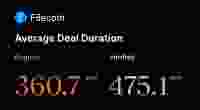Lifecycle of a file on Arweave vs IPFS
Arweave provides reliable, long-term storage, while Filecoin's data retention is limited. Find out why.
 3 min
3 minIf you’re an NFT project, you’re likely facing a dilemma: "Do I use Arweave and pay once, or Filecoin and pay-as-I-go?”
You’re also asking: “How long will my files be stored?”
This article explores how Arweave and IPFS store, maintain, and access files, and how this affects the reliability and longevity of digital assets.
The lifecycle of a file on Arweave
 What is Arweave?
What is Arweave?
Arweave is a decentralized blockchain designed to secure and host your data permanently on-chain. By making a one-time, upfront payment, you’re guaranteed at least 200 years of storage, or two human lifetimes.
Arweave doesn’t require ongoing monthly maintenance fees, retrieval fees, or hidden charges; it guarantees permanence and immutability.
Arweave's cost predictability is a significant advantage. As an NFT project owner, this plays a crucial role in ensuring the artwork remains permanently accessible to buyers, enhancing the project's value.
Your one-time payment ensures at least 20 copies of your data are maintained across the network. Backup redundancy enhances the security of your data and ensures operational stability, even in the event of node failures or network issues.
Lifecycle of a file using IPFS and pinning services
IPFS is not a storage platform; it’s a protocol for decentralized file sharing.
IPFS uses content addressing to identify files, allowing access from any host globally without dependence on centralized entities. This means data remains accessible on the network if stored by at least one node.
This is where pinning services come in. File pinning is the financial incentive layer to maintain your data on IPFS nodes. Services like Filecoin and Pinata offer a monthly recurring subscription to keep your data pinned and reward IPFS nodes, much like Google Drive or Dropbox.
Pinning services, on average, store your data on only 3 to 6 nodes. This limited redundancy threatens the long-term security of your data if any of these nodes fail or exit the network.
To manage the buildup of unpaid files, there is a ‘garbage collection’ mechanism, which automatically helps IPFS free up node resources by clearing unpinned data from the node’s cache, making space for new files. Much like if you stop paying for Dropbox, you will lose access to your data, and it will be deleted over time. This is another worry you can avoid with Arweave, where once your data is uploaded, it stays permanently.
According to its block explorer, the average lifecycle of data stored on pinning services using Filecoin is limited, typically little over a year. Beyond this timeframe, without continuous payments, your data is at risk of being deleted.

Your NFTs are at risk on IPFS
If you’re running an NFT project, you must balance multiple priorities. Worrying about whether your NFT assets are safe–while paying for yet another subscription–is a pain!
Pinning service fees can increase unexpectedly, leading to higher operational costs. If your NFT project cannot sustain these costs, you’ll lose access to your NFTs. For smaller projects or individual artists, this can be challenging.
IPFS warns users that pinning services are not liable for maintaining their data, and there is no guarantee they will continue to operate as a business. If your pinning service shuts down, your data will no longer be stored.

Several pinning services, such as Estuary and alwaysnft.cloud, have been discontinued, leaving users to find alternative solutions.
If you’re concerned about the longevity of your NFT assets, you will need to use multiple pinning services to match the same level of security that Arweave offers. This approach ramps up costs and complexity, while Arweave keeps it simple with just a one-time payment for permanent storage.
Which solution should you choose?
While IPFS offers flexibility and decentralized sharing, it requires active maintenance, ongoing payments, and 3rd parties to incentivize your data’s security.
For busy NFT projects and creators with large communities, this is a needless burden.
We recommend using Arweave (we’re biased).
We built Akord to help creators like you store valuable assets on-chain and forever.
No hidden fees, pay once, and rest easy that your data is safe.
Make your first upload to Arweave for free
Upload public or private data to Akord’s digital vaults. The only app to provide free storage on the Arweave blockchain.



